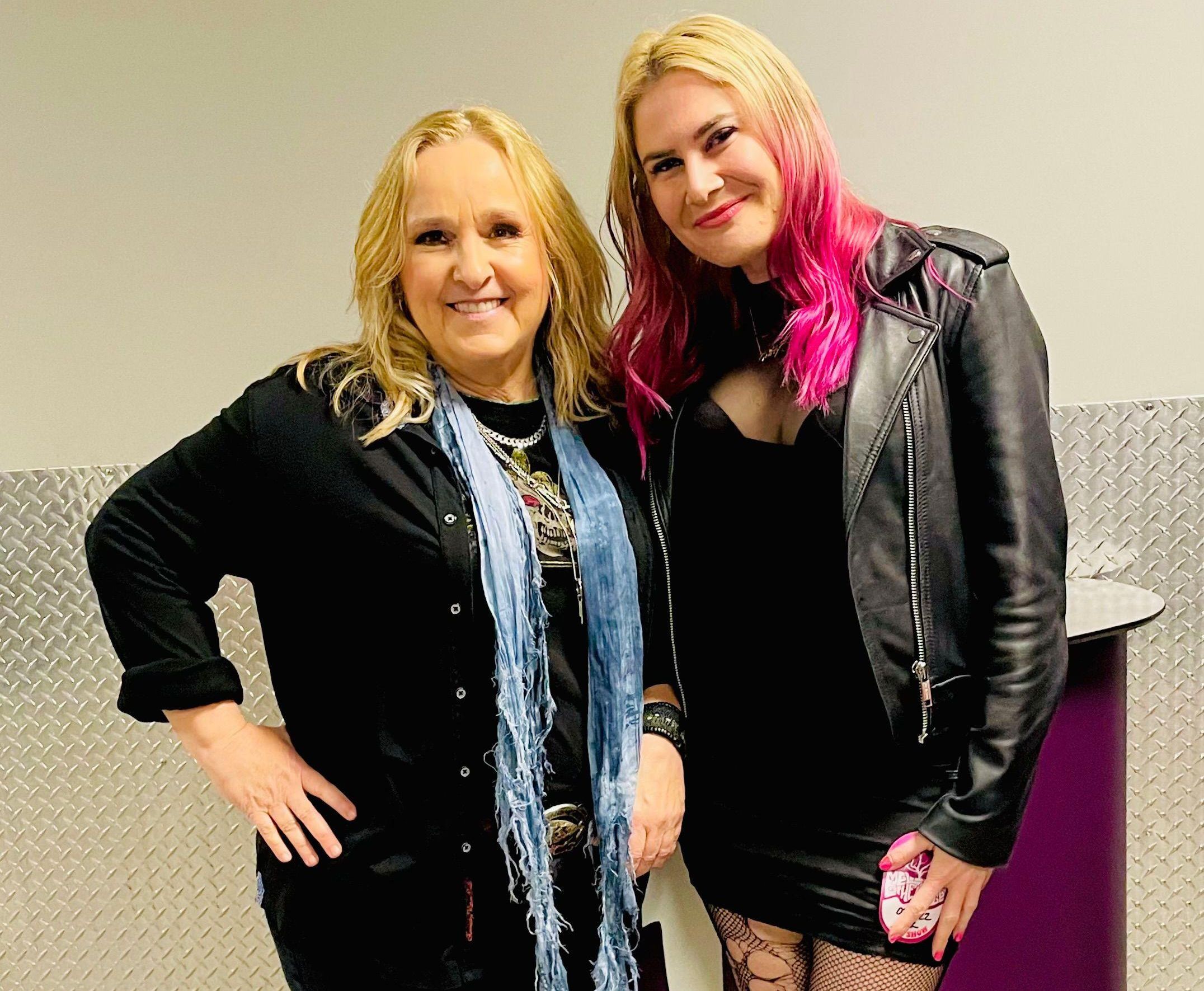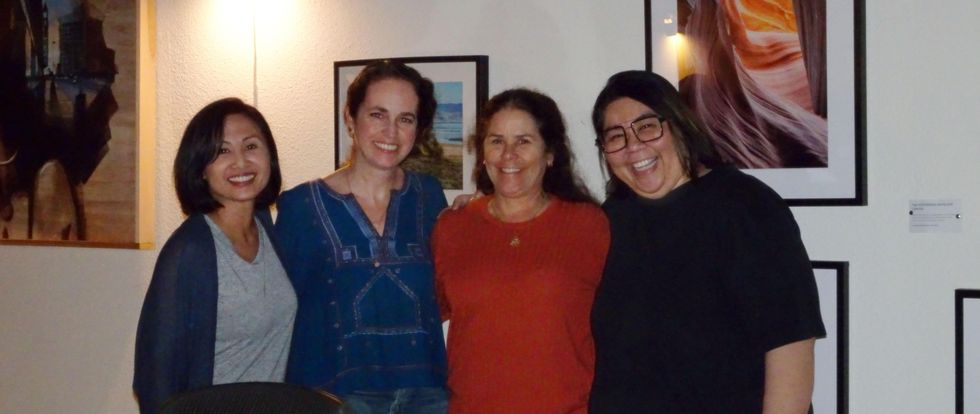Women Are Still Underrepresented in Entertainment. These LA Startups Want to Change That.
Christian Hetrick is dot.LA's Entertainment Tech Reporter. He was formerly a business reporter for the Philadelphia Inquirer and reported on New Jersey politics for the Observer and the Press of Atlantic City.

Shira Yevin’s lifelong crusade against a male-dominated music industry began with a pink RV.
After attending the Vans Warped Tour in 2004 and seeing far too few women on the bill, the punk rocker decided to take matters into her own hands: She crashed the tour by parking a pink RV on the campus of Cal State Fullerton and performing on a makeshift stage with her band, Shiragirl. The impromptu show was such a hit that Warped Tour welcomed Yevin back to run an official “Shiragirl Stage,” where female-fronted bands—including artists like Joan Jett and Paramore—performed in the following years.
Now, Yevin is taking an entrepreneurial approach to carve out more space for women in music. She’s the founder and CEO of Los Angeles-based startup Gritty In Pink, which runs an online “marketplace network” that connects music industry professionals with female talent—from musicians and songwriters to engineers and producers. Having launched in beta earlier this year, the startup’s InPink platform lets employers search for talent by skill and demographic.
“Businesses now know they need to find diverse women to hire—but they have no idea where to go to find them,” Yevin told dot.LA.
Whether Gritty In Pink can help solve that imbalance remains to be seen—but what’s clear is that there’s still a huge gender disparity in the music industry that needs addressing. A recent University of Southern California-sponsored study found that there’s been little to no improvement over the last decade in the number of women credited as artists, songwriters or producers on popular songs.
“Women's contributions are often dismissed or devalued,” according to Katherine Pieper, program director at USC’s Annenberg Inclusion Initiative, which conducted the study on women in music. “They're not given the opportunity to work on these songs, or when they are, their work is not being credited to them.”
The USC study examined credits for 1,000 songs that landed on the year-end Billboard Hot 100 chart over the last decade. Researchers found that just 23.3% of artists on the annual chart were women in 2021—a marginal improvement from 22.7% in 2012. The report’s authors blamed stereotypes around women and their abilities as well as the situations in which they must work, noting women in the music industry are often sexualized by their colleagues.
The music industry is not alone in these dynamics; the film industry has made little progress in addressing its own gender imbalance. Women made up only 25% of all directors, writers, producers, executive producers, editors and cinematographers working on top-grossing films in 2021, according to the latest study by the Center for the Study of Women in Television and Film at San Diego State University. That’s an improvement of just 6 percentage points from 19% in 2015, and up only 8 percentage points from 17% in 1998.
“The findings of my research suggest that progress will be slow—evolutionary as opposed to revolutionary,” Martha Lauzen, the center’s director, told dot.LA.
But just as Gritty In Pink is trying to diversify the music industry’s ranks, so are there startups now looking to bring more women into film production. Launched in 2018, L.A.-based Crewvie is a platform connecting film projects with production workers and vendors, with a focus on advancing diversity, equity and inclusion. Crewvie allows talent to create profiles that voluntarily self-identify their gender, race, sexual orientation or disabilities; productions can use Crewvie to hire such talent, track the composition of their crew and use demographic data to ensure they’re eligible for awards and tax incentives.
“We see Crewvie as a resource for women and other underserved people to be found,” co-founder and CEO Marcei Brown told dot.LA. “So there's no more excuses [like] ‘I can't find’—because they're all collected here in one place.”

Film studio Endeavor Content recently struck a deal with Crewvie to deploy the startup’s software across all of its productions. YouTube productions use the platform as well, according to co-founder Jeanette Volturno. Crewvie charges rates ranging from $200 to $1,500 for individual projects, while rates for enterprise clients (such as film studios) depend on the number of people and projects expected to use it.
With less than 10 employees, Crewvie is currently looking to close a seed funding round, with eyes on a larger future funding round to expand the platform into other territories and languages. Crewvie is also considering an expansion into live events like theater productions, as well as a foray into the music industry, Volturno said.
Likewise, Gritty In Pink is still in its “baby stages,” Yevin said, having raised $100,000 from Irvine-based Sunstone Management and the Long Beach Accelerator, with plans for a $1 million pre-seed round. The startup can count singer-songwriter Melissa Etheridge, of “Come to My Window” fame, among its supporters; Etheridge recently joined Gritty In Pink as a strategic advisor and has a stake in the company.
It also has dreams of expanding beyond the music industry, Yevin noted. “Our big vision is actually to become the global destination to hire female freelancers in every industry,” she said.
Christian Hetrick is dot.LA's Entertainment Tech Reporter. He was formerly a business reporter for the Philadelphia Inquirer and reported on New Jersey politics for the Observer and the Press of Atlantic City.




 Image Source: World
Image Source: World Image Source: Lyft
Image Source: Lyft
 Image Source: Metro
Image Source: Metro Image Source: JetZero
Image Source: JetZero